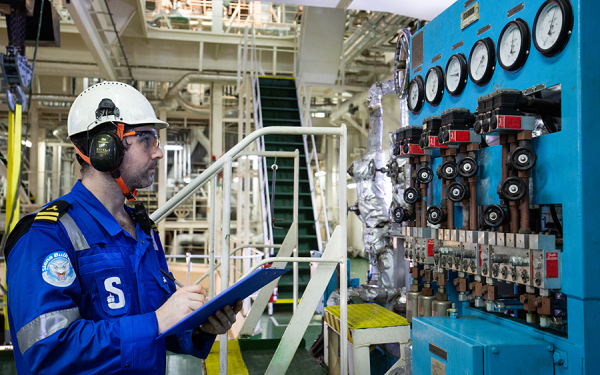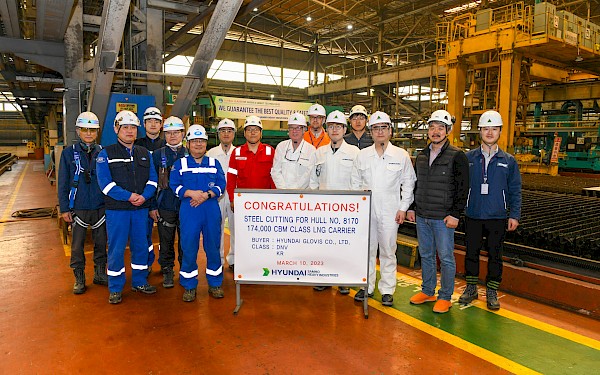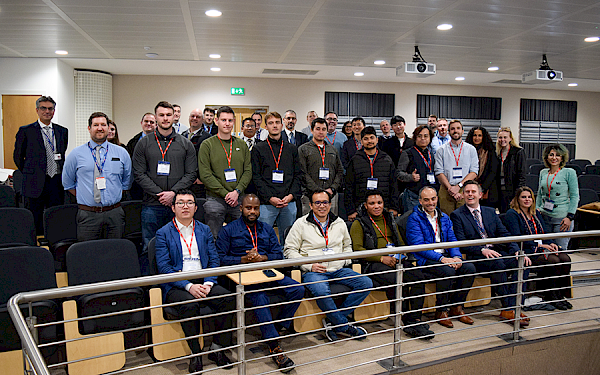
BLOG: The Future Engineer - Are today's capabilities sufficient for the maritime industry of tomorrow?
12 January 2023
By George Mermiris, General Manager and Director, Tritec Marine
In recent times the discussion on naval architecture and marine engineering skillsets and capabilities for supporting an evolving maritime industry (and by extension the oil & gas and marine renewables sectors) is picking up pace. So, it is perhaps suitable to take a closer look at the factors behind this trend and attempt to understand what this would mean for our industry.
But first let’s take a minute to consider the conventional engineering studies in the above fields: the university curricula offer a solid foundation of first-principles education, which is mature, well-tested and benchmarked by generations of graduates who successfully develop careers in, broadly speaking, sectors ranging between consultancy services, product development and support, shipbuilding and technical ship management.
The paramount importance of this education phase in the development of young engineers can neither be overlooked nor neglected. But is it sufficient?
Well, such training would be absolutely fine had the maritime industry lacked the urgency for innovation. But it doesn’t. In fact, the need to innovate on all fronts of ship operations from the most abstract (e.g. digital twin) to the most tangible (fabrication materials, fuels, etc.), acquires progressively a more visible correlation to technology (or lack of) that would make ships greener, safer and more profitable – each of these attributes individually can be demonstrably achieved, but can all of them be balanced out simultaneously in a cost-effective manner and in a few short years from today?
One could argue that this is too much to ask from seasoned engineers, let alone graduates, but this approach is not conducive to the direction our industry is taking.
It also sustains a rather outdated culture and suppresses the natural inquisitiveness of young and unbiased minds.
In this context the unbiased attribute should be perceived as the ability to effortlessly ask “why?” more often than not, and by doing so to challenge the norm and think out of the box.
Although this trait is not uncommon amongst the most experienced engineers, the truth is that we are all comfortable with situations that we have experience with, and, as a consequence, solutions that could bring real change are either outright rejected or receive connotations of varying levels of dismissal ranging between “Hollywood!” or “… too much innovation for comfort …” or even “… let someone else try it first …”.
However, if talented engineers with a solid first-principles education in science and the right mindset are:
a) exposed to state-of-the-art challenges,
b) given the latitude to use their imagination and creativity, and
c) allowed to work closely with open-minded and highly experienced engineers,
it is guaranteed that the result will pave the way for marked and visionary improvements. Such conditions will create fertile ground for exploring ideas from other industries and sectors of technology, and will encourage young engineers (and hopefully more seniors too) to expand on their training and capabilities, perhaps by pursuing formal university (post-graduate) degrees or with in-house seminars organised by their employers or with self-study just to name a few alternatives.
Although the direct benefits of this process in terms of products and services are apparent, it should not escape us that the indirect benefit is the nurturing of future leaders, who not only stem from sound educational background and solid professional experience, but also have developed the perspective and attitude to bring real change to our industry and the society at large. Such leaders will be more equipped to tackle contemporary and future challenges and will invest further (and better) to the development the engineers of the future.
The intention of this brief article is by no means to be exhaustive in its reflections but rather to convey the cultural and operational approach of our organisation in selecting and nurturing talent in view of the rapidly emerging challenges of maritime industry.
ENDS

